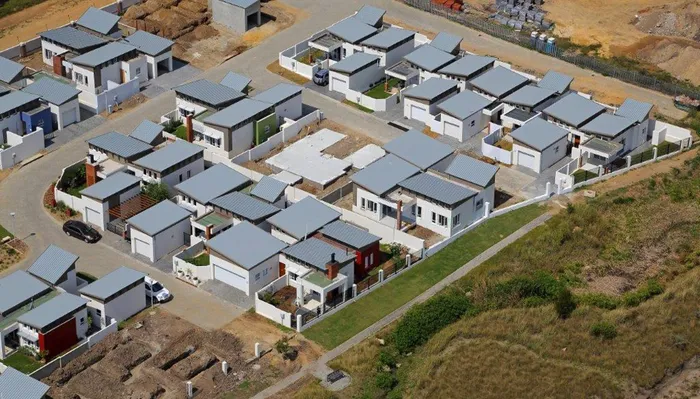Calgro M3 exits 2023 ready to tackle a brighter future

Calgro M3's focus will continue on driving efficiencies, containing costs and delivering high-quality, affordable homes and memorial parks. Photo Supplied
Calgro M3 exited 2023 a more sustainable business with a robust balance sheet and strong earnings growth of continuing demand for its lifestyle-focused housing developments and memorial parks.
Revenue has increased by 15.4% to R1.5 billion. Headline earnings per share increased 45.01% to 153.18 cents in the year to February 28, the highest ever achieved by the group. The gross profit margin improved to 23.5% from 21.3%, within the target range of 20% to 25%
Net debt to equity decreased to 0.62 from 0.71.
“We learnt some hard lessons from previous cycles. These results are based on our sustainable, well-diversified project rollout, a robust balance sheet featuring the lowest liabilities in seven years, and a net debt-to-equity ratio at an impressive 10-year low,” said group CEO Wikus Lategan in a telephone interview.
The board had resolved to consider a dividend policy for the first time, also reflecting confidence in the ability to withstand downwards market cycles, to reward shareholders, particularly long-standing shareholders, he said.
The group bought back some 9.27% of its shares at an average price of R2.34 subsequent to year-end and might buy-back more depending on the share price, Lategan said,
Cash and its equivalents at year-end decreased to R1.73 billion from R191.1m, while additional liquidity from a R100m overdraft and a R360m facility from the Development Finance Corporation remained undrawn.
The focus on increasing female representation in an industry that historically lacked their participation continued, with 44.8% representation and a target to achieve at least 50%. Historically disadvantaged employment rose to 73% from 71%.
This was in line with “our belief that if we can make a difference to one person every day, we can grow to be a sustainable business”, he said.
Lategan said management was proud of the “stellar performance”, and the focus would continue on driving efficiencies, containing costs and delivering high-quality, affordable homes and memorial parks.
He said persistent investment in innovative building designs, rethinking the efficiency of design layouts, and the continuous pursuit of margin improvement had driven the results.
For example, typically in a housing unit there used to be 25%-30% square metres of wasted space on things like staircases, but their architects had reduced this to under 20%-15%, with the difference going to the buyer. Aspirational lifestyle facilities at the developments, controlling administrative costs and maintenance of stable prices also helped keep demand keen, Lategan said.
The residential operations’ reach was expanded by targeting fully subsidised homes to homes in excess of R3m, ensuring diversity amid current economic and market challenges.
A restructuring and refocus of the Memorial Parks business saw its best performance ever in the last three months of the financial year.
The introduction of data-driven market analysis and for instance, interest-free instalment plans was boosting demand in the memorial parks, with some revenue only expected to be accounted for in the new financial year.
The residential pipeline comprises more than 22 000 opportunities, or about R15.9bn of revenue, across nine projects and the Memorial Parks pipeline offers over 99 000 burial opportunities with R2.1bn approximate revenue.
Administrative expenses increased14.1% to R102.4m due to increased marketing costs linked to revenue growth, along with a general inflationary increase in administrative costs.
More than 3 186 completed units were handed over in the year and 2 719 were under construction, with just more than 3 100 being serviced in the 2024 financial year.
“We remain alert to the impact of current economic conditions, increasing interest rates and tightening of lending criteria by banks, but we are confident that our deep understanding of our target market, combined with the strong demand for housing provides us with the competitive advantage to succeed,” Lategan said.
BUSINESS REPORT
Related Topics: